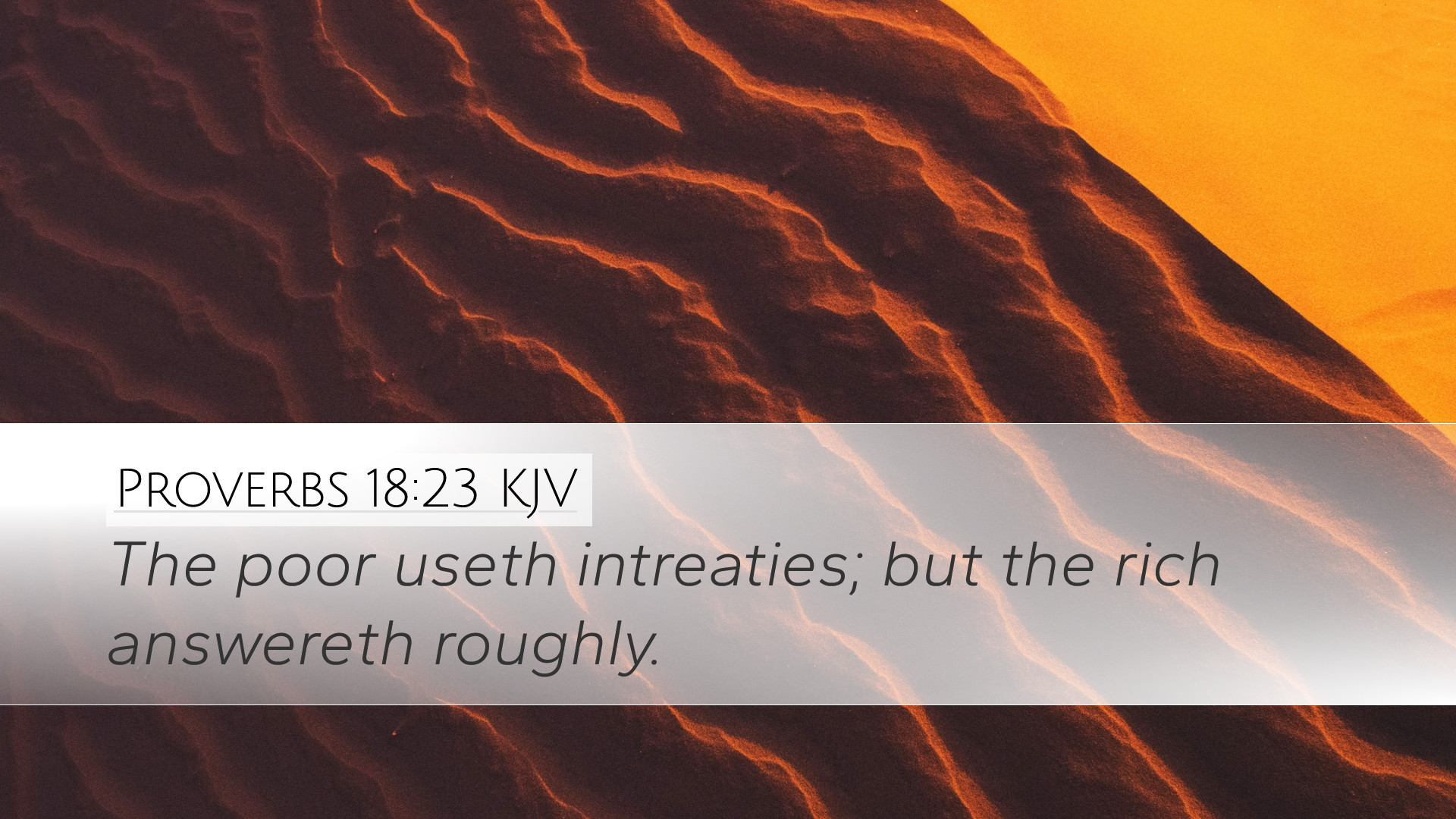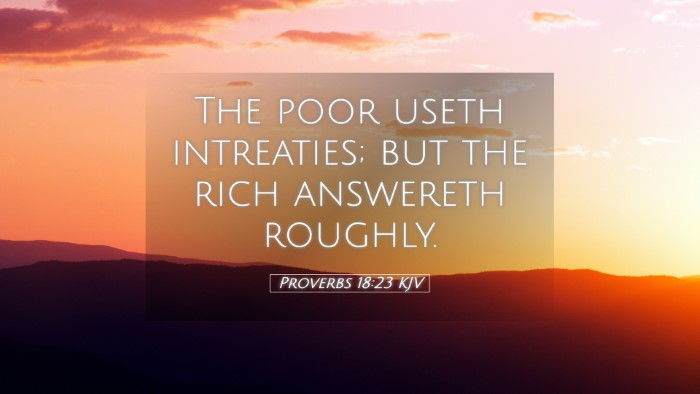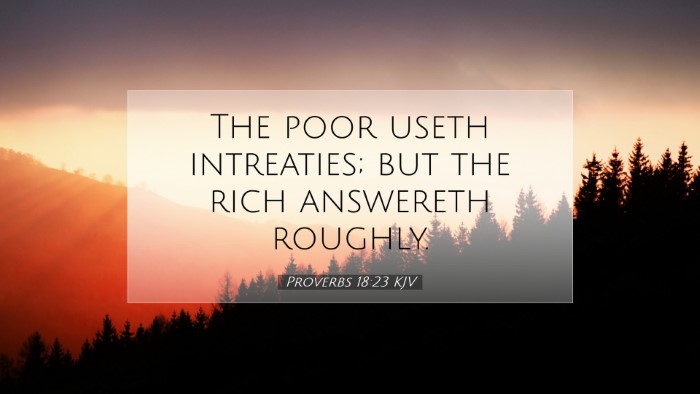Commentary on Proverbs 18:23
Verse: "The poor useth entreaties; but the rich answereth roughly."
Introduction
Proverbs 18:23 presents a poignant contrast between the attitudes and behaviors of the poor and the rich in their communication. This verse encapsulates a core theme found throughout the book of Proverbs: the relationship between wealth, status, and interpersonal conduct. The insights from prominent public domain commentators, such as Matthew Henry, Albert Barnes, and Adam Clarke, illuminate the nuances of this text and encourage deeper reflection for pastors, students, theologians, and scholars.
Analysis of the Text
Literary Structure
This verse is structured in two parallel clauses that juxtapose the responses of the poor and the rich. This antithetical structure is a common feature in Hebrew poetry, particularly in the wisdom literature of Proverbs.
Interpretative Insights
- The Poor's Approach: Henry emphasizes that the poor, often humbled by their circumstances, approach others with entreaties, indicating a spirit of meekness and reliance on the goodwill of others. They are more likely to appeal to the kindness of others, showcasing a form of humility.
- The Rich's Response: In contrast, Barnes notes that the rich may respond roughly or cavalierly. Wealth can breed arrogance, leading individuals to dismiss the pleas of the less fortunate. This attitude reflects a broader spiritual principle about the dangers of wealth, suggesting that it can harden the heart.
Thematic Explorations
The Contrast of Social Classes
This verse starkly outlines the inequalities present in society. The poor man's pleas highlight his vulnerability and need for compassion, while the rich man's response reflects a potential lack of empathy. Clarke notes that social status influences interactions, and that wealth can create a distance that fosters insensitivity.
Humility and Pride
The dynamics of humility and pride are prominent in this verse. The poor's entreaties are emblematic of humility, while the rich's rough responses suggest a pride that may arise from their social standing. Matthew Henry points out a biblical theme: God often favors the humble over the proud.
The Spiritual Implications of Communication
The manner in which one communicates reveals much about their character and spiritual condition. The entreating spirit of the poor can be seen as an act of faith, trusting in divine provision and the goodwill of others. Conversely, Barnes indicates that the richness of one's material possessions can lead to spiritual bankruptcy, as displayed in the behavior of those who respond hastily or unkindly.
Practical Applications
This verse is rich with practical implications for various audiences, including pastors and church leaders who seek to navigate the complexities of social dynamics within their congregations.
- Encouraging Compassion: Pastors are encouraged to foster a spirit of compassion within their communities, reminding members to listen to the needs of the poorer congregants with empathy.
- Addressing Pride: Addressing the pride that can develop from wealth is vital. Implementing teachings on stewardship and humility can help counteract this tendency, encouraging a heart of service among the wealthy.
- Building Community: Churches can build bridges between different socioeconomic classes, fostering relationships that allow for mutual support and understanding.
Conclusion
Proverbs 18:23 serves as a potent reminder of the complexities inherent in human interactions affected by social and economic status. By reflecting on the insights provided by commentators like Matthew Henry, Albert Barnes, and Adam Clarke, we are called to examine our own attitudes and responses to those around us, particularly within the contexts in which we serve. In doing so, we align our hearts more closely with God's call to justice, mercy, and love.


